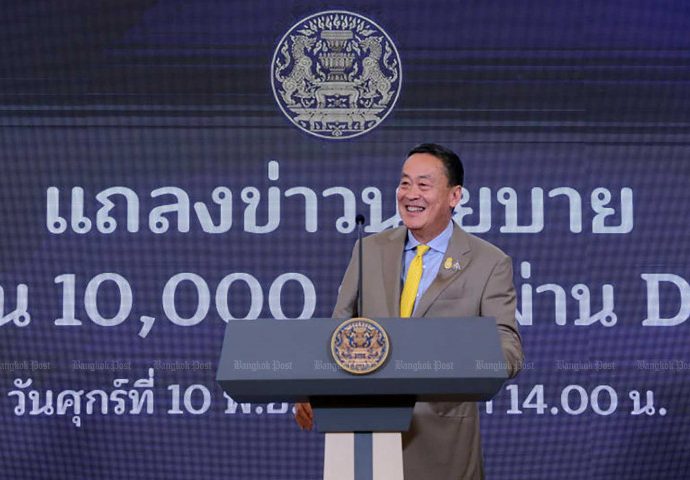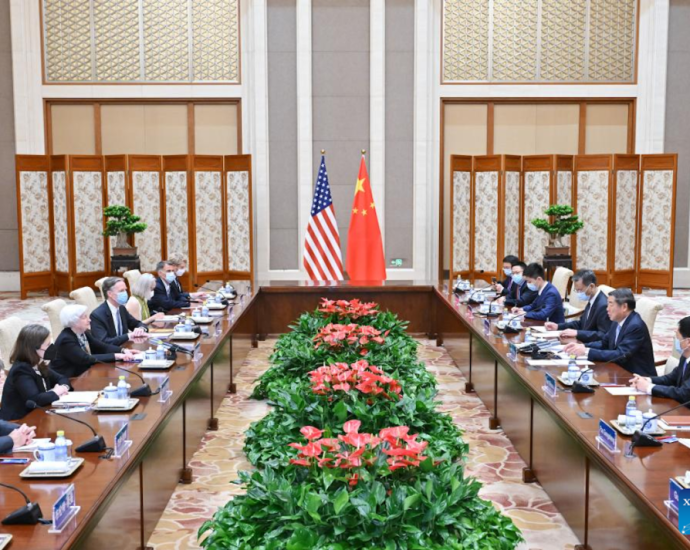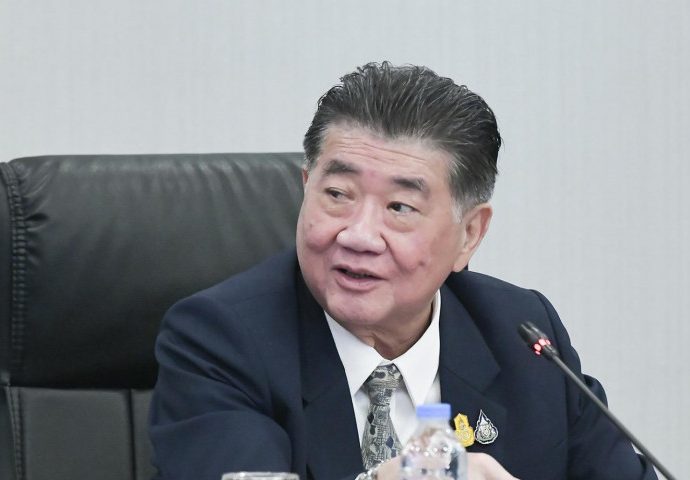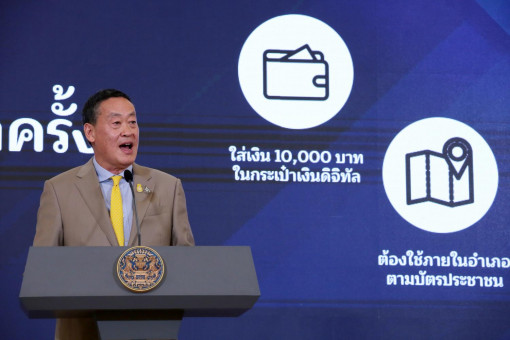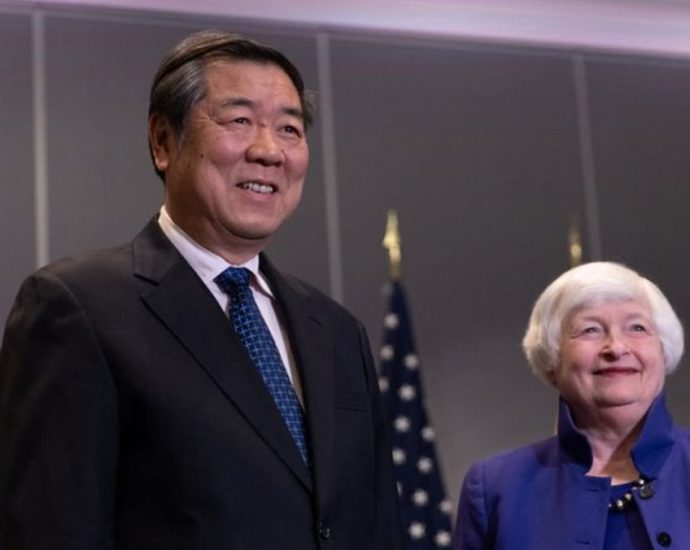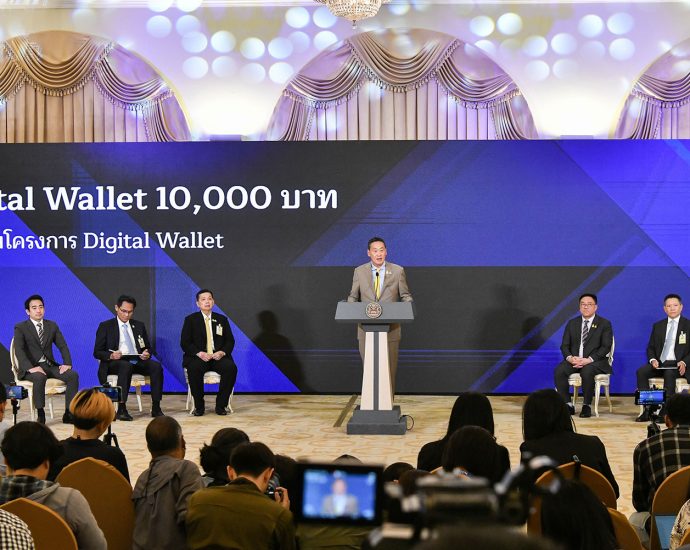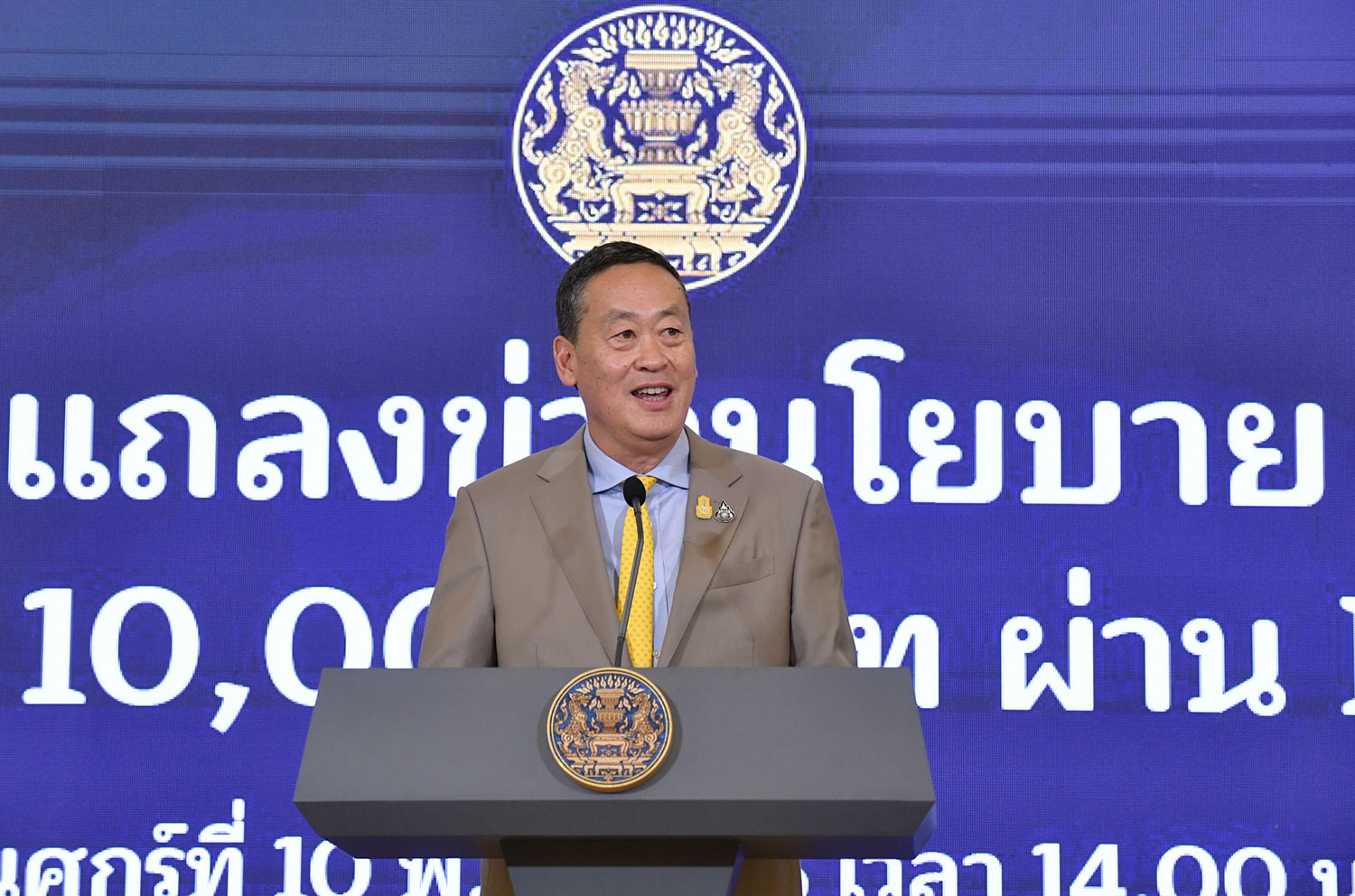What do Pacific people really think of China?
China has been steadily increasing its footprint in the Pacific in recent years as it attempts to deepen its influence and challenge the traditionally strong relationships many countries have with the US and Australia.
But what do people in the Pacific think of China’s expanding interest and engagement in the region?
To find out, we conducted surveys with local residents in two countries where China has focused its outreach in recent years – Papua New Guinea and Solomon Islands. Both countries have embraced a foreign policy professing to be a “friend to all and enemy to none.”
PNG is China’s principal diplomatic and trading partner in the region. Prime Minister James Marape just concluded a visit to Beijing where he and Chinese leaders discussed deepening their economic and security ties, including possibly establishing a common currency trading arrangement.
Solomon Islands’ relationship with China, meanwhile, has boomed since it abandoned its diplomatic recognition of Taiwan in September 2019. China has made huge efforts to promote cooperation with Prime Minister Manasseh Sogavare’s government on aid, trade, agriculture, health, fisheries and policing cooperation.
Beijing intends to develop this partnership to serve as a role model for other Pacific Island nations that still recognize Taiwan.
While the PNG and Solomon Islands governments welcome China’s growing engagement with their countries, however, our research found this wasn’t always the case with the local populations.
Environmental pollution concerns
Our first survey sought to gauge the corporate social responsibilities of the China-owned Ramu NiCo project in Papua New Guinea through the eyes of those who are currently living or have lived in Madang Province, where it’s located.
We collected 100 responses in total, mainly from current and former Divine Word University students and staff.
In 2019, the nickel mine operator had to apologize for accidentally spilling some 200,000 liters of toxic slurry into a bay in the province. The vast majority (98%) of our respondents said they were concerned about environmental pollution, while nearly 60% thought the mine project has not benefited PNG.
In response to the question, “Looking back, do you support the [previous] government’s approval of the China-owned Ramu NiCo project”, nearly 70% said “no.”
However, those living in the area of the mining lease tended to have a more positive view of the venture because of the direct financial benefit they receive in the form of royalties or ancillary businesses.
And 72% of our participants said they support the PNG government developing a closer relationship with China.
The second survey (conducted by Denghua Zhang and Jeffers Teargun Heptol) asked 78 PNG students who had received Chinese government scholarships for their perceptions on the program and Chinese soft power, more generally.
A large majority of respondents (87%) said they would recommend the program to their friends. Studying in China also appeared to change their impressions of the country itself.
Before these students went to China, they were asked to score the Chinese political system on a scale of one to five (from a very low impression to very high), as compared to political systems in Western countries.
The students gave China’s system an average score of 3.45 out of five before their study abroad. After they started the program and lived in China for some time, this average score increased to 4.01.
The scholarship program also changed their views about China’s environmental sustainability from an average score of 3.17 before they went to China to 3.73 after they arrived. Similarly, the students’ average score for China’s foreign policy was boosted from 3.47 to 3.80.
‘Very helpful in building our roads’
For the third survey (conducted by Denghua Zhang and Lincy Pendeverana), we canvassed 93 students from Solomon Islands National University on their views of China and more traditional Pacific partners like the US and Australia.
Two-thirds of our respondents were supportive of a closer bilateral relationship between China and Solomon Islands, but support for a closer relationship with the US was even higher (76%).
Nearly four-fifths of these students also supported China’s Belt and Road projects in Solomon Islands. One participant wrote, “they are very helpful in building and upgrading our roads.”
The other fifth, however, had a more negative view. For example, one student said, “their purpose is to create a debt risk for our government and that leads the Chinese to control the whole of our resources”.
Another student commented, “for a country like Solomon Islands with a weak economy, this Belt and Road project will be a debt trap.”
While some of the students we surveyed in PNG and the Solomon Islands think positively of China, the views of non-governmental organizations in the Pacific can be less rosy.
For example, another survey of 57 NGOs in PNG, Fiji and Tonga conducted in 2021 by Denghua Zhang (one of the authors) found that a majority in each country disapproved of China’s Belt and Road Initiative.
Their concerns included human rights violations, bad governance, debt risks, environmental pollution and an influx of small Chinese businesses and low-quality goods into their countries. For example, one Fijian NGO representative said, “feels that Fiji can go down the same path as Sri Lanka with their port example.”
Our new surveys paint a more mixed picture of local feelings in the Pacific about China. Our participants did not simply “love China” or “hate China”, but had far more complicated, nuanced perceptions of the country.
This is often not represented in media reports on China’s influence in the region, but is important for policymakers in the US and Australia to understand as they seek to counter moves by China to deepen its relationships here.
Denghua Zhang is research fellow, Australian National University and Bernard Yegiora, Lecturer, Divine Word University
This article is republished from The Conversation under a Creative Commons license. Read the original article.


